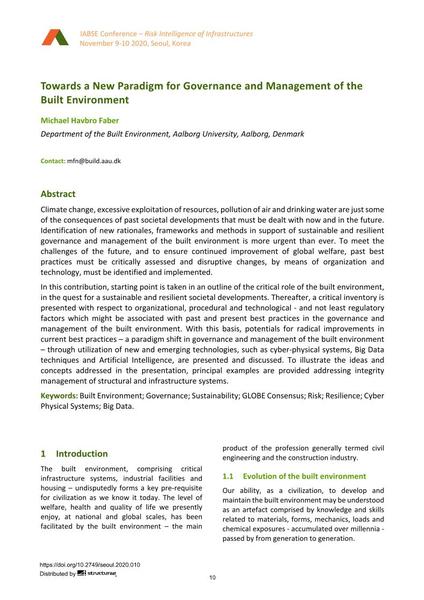|
Abstrait:
|
Climate change, excessive exploitation of resources, pollution of air and drinking water are just some of the consequences of past societal developments that must be dealt with now and in the future. Identification of new rationales, frameworks and methods in support of sustainable and resilient governance and management of the built environment is more urgent than ever. To meet the challenges of the future, and to ensure continued improvement of global welfare, past best practices must be critically assessed and disruptive changes, by means of organization and technology, must be identified and implemented. In this contribution, starting point is taken in an outline of the critical role of the built environment, in the quest for a sustainable and resilient societal developments. Thereafter, a critical inventory is presented with respect to organizational, procedural and technological - and not least regulatory factors which might be associated with past and present best practices in the governance and management of the built environment. With this basis, potentials for radical improvements in current best practices – a paradigm shift in governance and management of the built environment through utilization of new and emerging technologies, such as cyber-physical systems, Big Data techniques and Artificial Intelligence, are presented and discussed. To illustrate the ideas and concepts addressed in the presentation, principal examples are provided addressing integrity management of structural and infrastructure systems.
|

